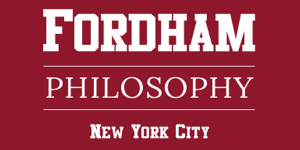Mini-Heap
Friday Mini-Heap…

- On “which epistemic virtues are needed by agents who navigate epistemic networks such as the Internet” — a special issue of the open-access Social Epistemology Review and Reply Collective on trust in a social and digital world
- “We… are not big fans of Justin Weinberg… [H]is his latest take may be his greatest outrage” — David Ottlinger did not like my critique of The Good Place
- The octopus is an extraordinarily intelligent creature. Is it conscious? — Michael S. A. Graziano (Princeton) on why this is a difficult question
- Philosophers on #MeToo — a variety of pieces in the latest Newsletter on Feminism and Philosophy
- On the rich variety of philosophical moves within the category of “responding to a text” — thoughts from Martin Lenz (Groningen)
- “Approaches based on methodological reductionism—like grand unified forces, supersymmetry, string theory, preon models, or technicolor—have failed for the past 30 years” — Sabine Hossenfelder (Frankfurt) suggests trying an approach that “does not rely on taking things apart into smaller things”
- “For all we know… self-improving AIs might tend to engineer consciousness out. Or certain AI companies simply judge conscious AI to be a public relations nightmare” — reasons for a “wait and see” approach to AI consciousness, from Susan Schneider (Connecticut)
Mini-Heap posts appear when 7 or so new items accumulate in the Heap of Links, the ever-growing collection of items from around the web that may be of interest to philosophers.
The Heap of Links consists partly of suggestions from readers; if you find something online that you think would be of interest to the philosophical community, please send it in for consideration for the Heap. Thanks!
Subscribe
Login
0 Comments


